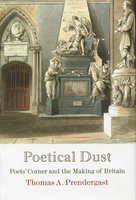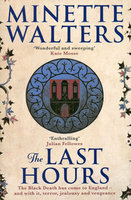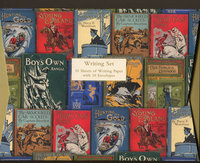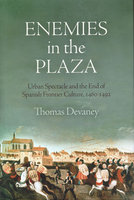From the Prologue: 'He'd taught his sons to reel in something that feels like Moby Dick on this boat. He'd accidently shot himself in both legs on this boat. He'd fallen drunk from the flying bridge on this boat. He's written achy, generous, uplifting, poetic letters on this boat. He propositioned women on this boat. He'd hunted German subs on this boat. He'd saved guests and family members from shark attack on this boat. He'd acted like a boor and a bully and an overly competitive jerk on this boat. She had been intimately his, and he hers, for 27 years.' Sub-titled 'Everything He Loved In Life, And Lost, 1934-1961', the book is a New York Times bestseller. Hendrickson has delved into the life of Ernest Hemingway and done what is seemingly impossible - present him to us in a whole new light. With poetic sensibility, he focusses on the period 1934-61, from the pinnacle of Hemingway's fame to his suicide. We see how, even in his most accomplished period, Hemingway carried within him the seeds of his tragic decline. Throughout this period he had one constant, along with the devils that haunted him his whole life - his beloved boat Pilar, built to his specifications in a Brooklyn boatyard, delivered to him in Florida, and then abandoned in Cuba towards the end of his life, when Hemingway was ill beyond recovery. The boat represented and witnessed everything he loved in life - virility, deep-sea fishing in all its competitive nature, access to the beloved ocean, freedom, women and booze, the formative years of his children. We see Hemingway in Paris, in Key West, in Cuba, in New York and so often on Pilar, or wanting to be. Hendrickson chose the close connection between Hemingway's life and the words that would wind up in the pages of his books - the fictions he invented about his life - how the darkness was always there and the joie de vivre. We see Hemingway with Maxwell Perkins, his friend and rival F. Scott Fitzgerald, Marlene Dietrich, his four wives and three children, and we get insight into his troubled son Gigi, a doctor who lived his adult life mostly as a cross-dresser, and died squalidly and alone in a Miami women's jail. He was the son Hemingway forsook the least, yet the one who disappointed him most, as Gigi acted out for nearly his whole life so many of the tortured, ambiguous tensions his father felt. 'We have a wonderful current in the Gulf still in spite of the changes in weather and we have 29 good fish so far. Now they are all very big and each one is wonderful and different.' - September 13th 1952. 534pp, illus.
Additional product information







